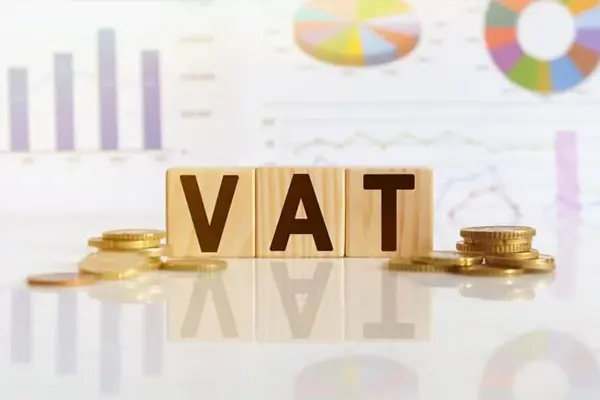Value Added Tax (VAT)
Value Added Tax (VAT) is a consumption tax applied to the value added at each stage of production and distribution of goods and services. It is widely used across the European Union, where it serves as a significant source of revenue for both national governments and the EU budget. VAT is collected incrementally, based on the increase in value of a product or service at each step of the supply chain, ultimately being borne by the final consumer.
What is VAT Compliance?
VAT stands for Value Added Tax, a consumption tax levied on most goods and services sold in the UK. VAT compliance refers to the process of ensuring that your business meets all legal requirements related to VAT. This includes registering for VAT when necessary, issuing correct VAT invoices, filing VAT returns on time, and maintaining accurate records.
When Must a Business Register for VAT?
Understanding what triggers VAT registration is crucial for compliance. A business must register for VAT if its taxable turnover exceeds the VAT registration threshold, which is currently £90,000 as of 2024. This threshold applies to any 12-month rolling period, not just the calendar year. Even if your business’s turnover is below this threshold, you may still opt for voluntary VAT registration, which could offer certain advantages like reclaiming VAT on purchases.
What is VAT Registration and When to Register?
VAT registration is the process of enrolling your business with HMRC to collect and pay VAT. Once registered, you’ll receive a VAT compliance certificate and a VAT registration number. From that point forward, you’re legally required to charge VAT on your taxable sales, issue VAT-compliant invoices, and submit regular VAT returns.
What Happens Once a Business is Registered for VAT?
Once registered, your business enters a new phase of compliance. You must start issuing VAT invoices that meet HMRC VAT invoice requirements. These invoices must include specific details such as your VAT registration number, the date of supply, a description of the goods or services provided, and the VAT amount charged.
Failure to issue proper invoices can result in penalties, so it’s essential to understand the requirements fully. For smaller transactions, a simplified VAT invoice can be used, which includes fewer details but still meets the basic legal requirements.
Compliance Obligations and Fiscal Representatives
For businesses operating across borders, especially within the EU, VAT compliance can become more complex. You may need to appoint a fiscal representative in another country to handle VAT on your behalf. This representative ensures that your business complies with local VAT laws, files VAT returns, and manages payments to the tax authorities in that country.
What are VAT Returns, and How Does the Reporting Process Work?
A significant part of VAT compliance is the accurate and timely filing of VAT returns. These returns report your VAT transactions to HMRC, showing how much VAT you’ve charged customers and how much VAT you can reclaim on your business expenses. The reporting period is usually quarterly, though some businesses may opt for monthly or annual returns depending on their cash flow and trading patterns.
What Happens After the VAT Returns Are Filed? Tax Audits Explained
After filing your VAT returns, HMRC may conduct a VAT compliance check or audit to ensure the accuracy of your returns. What triggers a VAT compliance check? Various factors can trigger a check, including discrepancies in your returns, significant changes in your VAT payments, or random selection as part of HMRC’s compliance program.
During an audit, HMRC will review your records, invoices, and returns to verify that you’ve complied with VAT regulations. If errors are found, you may face penalties, interest charges, or, in severe cases, legal action.
Why is Compliance Important?
So why is compliance important? Staying compliant with VAT laws helps your business avoid fines, penalties, and legal issues. It also ensures that your financial records are accurate and up-to-date, which is essential for managing cash flow and planning for the future. Non-compliance can damage your business’s reputation and lead to significant financial losses.
The VAT Compliance Process: A Step-by-Step Guide
The VAT compliance process involves several key steps:
- Determine Eligibility: Monitor your taxable turnover to determine if you need to register for VAT. Use a VAT compliance checklist to track your progress and ensure you’re meeting all requirements.
- Register for VAT: Complete the registration process with HMRC once you exceed the registration threshold or decide to register voluntarily.
- Issue VAT-Compliant Invoices: Ensure all invoices meet HMRC’s requirements, including your VAT registration number and accurate details of the transaction.
- Maintain Accurate Records: Keep detailed records of all transactions, VAT invoices, and VAT returns for at least six years.
- File VAT Returns: Submit your VAT returns on time, accurately reporting your VAT collected and reclaimed.
- Prepare for Audits: Be ready for potential compliance checks by maintaining clear and accessible records.
What Are the Legal Requirements for a VAT Invoice?
A VAT invoice must include:
- Your business name and address
- Your VAT registration number
- The date of the invoice
- A unique invoice number
- The customer’s name and address
- A description of the goods or services provided
- The total amount excluding VAT
- The VAT amount
- The total amount including VAT
These elements are crucial to meet HMRC VAT invoice requirements and ensure that your invoices are legally compliant.
Conclusion
VAT compliance is an ongoing process that requires careful attention to detail. From understanding what VAT stands for to ensuring your invoices meet legal standards, every step matters. By staying on top of your VAT obligations, you can avoid penalties, maintain good standing with HMRC, and keep your business running smoothly.
For more guidance on VAT compliance, contact us. Our experts can help you navigate the complexities of VAT, ensuring your business remains compliant and successful.






